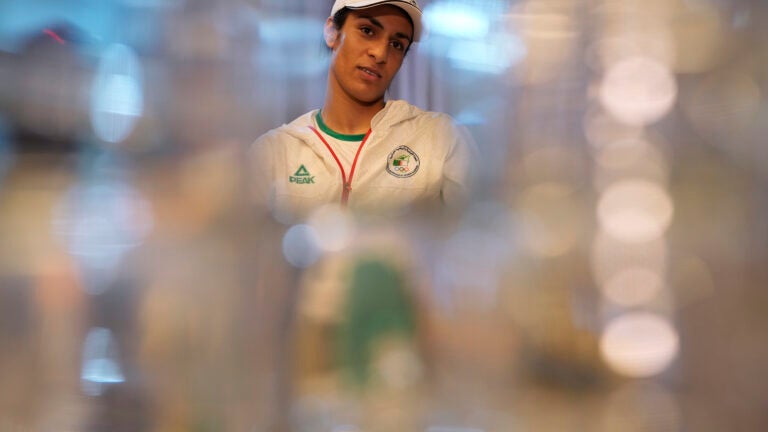The International Boxing Association (IBA) found itself in the midst of controversy and confusion during a recent news conference regarding the eligibility tests that led to the suspension of Algerian boxer Imane Khelif and Taiwanese boxer Lin Yu-ting from last year’s world championships. The lack of transparency surrounding the tests and their results has sparked outrage and online abuse against the two athletes during the ongoing Paris Games.
The IBA’s refusal to disclose crucial details about the tests has only added fuel to the fire, with many questioning the governing body’s integrity and motives. Chris Roberts, the IBA’s secretary general and CEO, cited letters from the Olympic committees of Algeria and Taiwan as reasons for withholding information during the news conference. This lack of transparency has only served to deepen the divide and controversy surrounding gender regulations and identity in sports.
The former chair of the IBA’s medical committee, Ioannis Filippatos, revealed that only four out of hundreds of fighters were subjected to blood tests at the 2022 world championships. The decision to test Khelif and Lin was reportedly based on complaints from other teams, highlighting a questionable standard of profiling in sports. The revelation of elevated testosterone levels in the tests further muddied the waters, as it contradicted previous statements made by the IBA regarding the nature of the tests.
Despite attempts to explain the timing of the suspensions and the subsequent uproar, the IBA’s handling of the situation has only raised more questions than answers. The International Olympic Committee (IOC) expressed dissatisfaction with the flawed testing results provided by the IBA, further casting doubt on the credibility of the governing body.
The backlash against Khelif and Lin reached a peak during the Paris Games, with Khelif’s opponent, Angela Carini of Italy, abruptly ending their bout after just 46 seconds. The emotional fallout from the incident and the subsequent online abuse directed at the athletes have highlighted the need for greater sensitivity and respect in sports.
In a surprising turn of events, the IBA announced plans to award $3.1 million in prizes to top Olympic performers, a move that was met with skepticism and rejection by some athletes and associations. The refusal to accept the money from the IBA underscores the deep-rooted issues and mistrust surrounding the governing body and its decisions.
Despite the challenges and controversies surrounding their eligibility, both Khelif and Lin have chosen not to appeal their disqualifications from the world championships. The financial burden and complexity of the appeals process have deterred many athletes from seeking justice and clarity in such situations.
As the Paris Games continue and the spotlight remains on Khelif and Lin, it is crucial for the sports community to reflect on the broader issues of fairness, transparency, and respect in sports. The athletes’ resilience and determination to overcome adversity in the face of scrutiny and discrimination serve as a reminder of the importance of upholding the values of sportsmanship and integrity in all competitions.


